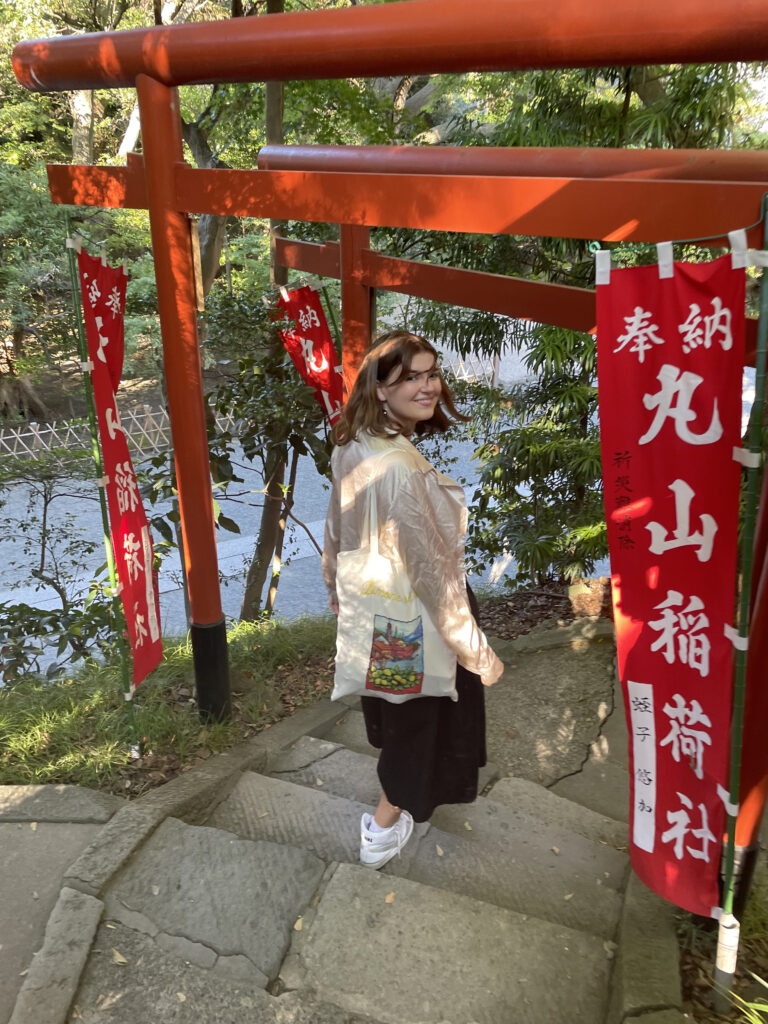Postcard from Abroad: A Gaijin in Bunkyo, Tokyo
By Jules Blech
TOKYO, JAPAN—I am a foreigner in Japan, a gaijin, this semester, who speaks no Japanese. When I go to a restaurant, I grab the menu, point to a random item, and say “kore onegaishimasu.” Then, I nod my way through the questions they have for me. I’ve accidentally ordered some really interesting coffees this way. My main concerns at these restaurants are embarrassing myself, wasting the workers’ time, and/or being culturally insensitive. Sometimes, I get stares, but the workers at these cafes have the most profound patience for me. As someone who feels lost and confused, these moments of kindness and patience improve my day. I want to learn Japanese to show the workers that I respect them as well because I know my furious nodding, smiling, and poorly pronounced “arigato gozaimasu” are not enough to show my appreciation.
I have found that some nights I need to go to an English-speaking, french-fry serving restaurant to keep myself sane. I am more in my comfort zone. I can show the workers that I appreciate them. The main comfort restaurant I frequent is called Pipeline, where you “speak English or die.” You get a discount for speaking English, and they have fries and pizza. The owner seats you, takes your order, cooks your food, and checks you out. He is so excited to learn more English from us. I feel like it is a safe haven in a typically confusing place. I came here to learn about Japan and its culture, but this experience has shown me how much feeling like an outsider can affect you.
I know that in these Japanese local restaurants, I am disturbing the peace of the locals. During my first dinner out, I forgot to take off my shoes before I got on an elevated platform, I was unable to tell the waiter what I wanted to order, and I did not know that I had to press a button to summon the waiter. I ended up sitting at that table embarrassed for way longer than necessary because I did not even know to say “sumimasen” to get his attention. I am trying to learn how to be properly respectful, but often, I unintentionally fail. I am privileged to be able to come to Tokyo and study its culture. A lot of the learning comes from failing and realizing the differences in cultural standards. I like sitting quietly on the train. I love that the restaurants cater to lone customers. There is history at the shrines and temples at every corner. On the other hand, I miss feeling comfortable in a tanktop and jean shorts. I miss being able to strike up a conversation with a cashier and knowing how to answer their basic questions. I miss not having to convert yen to dollars on my phone to understand how expensive something is.
The more time I am here, the easier it is to navigate this amazingly different place. It is impressive how quickly I could adapt, but I understand that I am coming from a place of privilege. In the United States, I do not stick out. People come to the United States because they want to experience what it stands for, but often, they are rejected by a portion of the population. I came to Japan, and while I am able to get around undisturbed for the most part, I find myself getting stares from those who do not love foreigners, mostly older people. I do recognize that this position is still one of privilege, and not all foreigners coming from the United States experience this pleasure of being mostly undisturbed. However, the taste of feeling like an outsider allows me to empathize with those who do not have these same privileges, whether that be in Japan or the United States. I hope to take this experience and apply it and to lend a helping hand when need be.
This article originally appeared on page 11 of the September 2022 edition of The Gettysburgian’s magazine.

